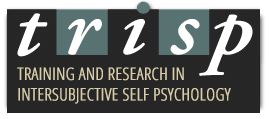In the opening event of TRISP’s 2014–2015 workshop series – Intersubjective Self Psychology – Peter Zimmermann used an illustrative metaphor to capture the shift from a traditional psychoanalytic approach to a self psychological approach. He said, “Where other perspectives ask What is the patient running from? the self psychologist asks What is the patient running towards?” The therapeutic pathway by which the patient runs toward health is the selfobject transference. Selfobject transference – Heinz Kohut’s groundbreaking contribution to psychoanalysis and the heart and soul of self psychology – is the topic for our second workshop, which will build on the ideas laid out in Peter’s introduction and will provide the foundation for the workshops in the series to come. Some thoughts in advance of the October 24th workshop on Selfobject Transference…
Rather than conceiving of the patient’s transference to the analyst as a misguided displacement of past onto present, a projection of disavowed inner turmoil, or an enactment of a history of relational conflict – all of which are to be interpreted away – self psychology conceives of the transference as the reinstatement (or birth!) of a previously interrupted pathway of development, one to be facilitated and built upon. Working within a perspective of empathic attunement to the patient’s inner world, the self psychologist looks to be responsive to the patient’s need to use the analytic relationship as a means toward putting derailed development back on track. In the context of a responsive selfobject milieu, inevitable ruptures in empathy are explored, repetitive dynamics are understood, and the result is a deepening of selfobject experience. Sustained attention to the selfobject dimension of the analytic relationship enhances self experience, allowing ambitions to be fulfilled, personal ideals to be realized, and a sense of belonging to be cherished.
At the upcoming workshop we’ll delve more deeply into these ideas with an aim toward elaborating the expansive, hopeful perspective generated in a treatment focused on selfobject responsiveness. We’ll also elaborate on the selfobject themes that Kohut articulated so fully – mirroring, idealization, and twinship. And we’ll present case material to illustrate the ideas and provide a foundation for what promises to be an illuminating discussion. Will we see you there? Hoping so.
Aviva Rohde and Karen Roser

 Find Us on Facebook
Find Us on Facebook
The workshop sounds exciting and “real”, Aviva and Karen. It is intriguing for any of us working with patients with whom the work goes relatively smoothly as well as those with whom it can feel on “tenterhooks”.
I look forward to the workshop and some lively discussion, finding the concept of “What is the patient running to?” of particular relevance to a new client with whom I am working.